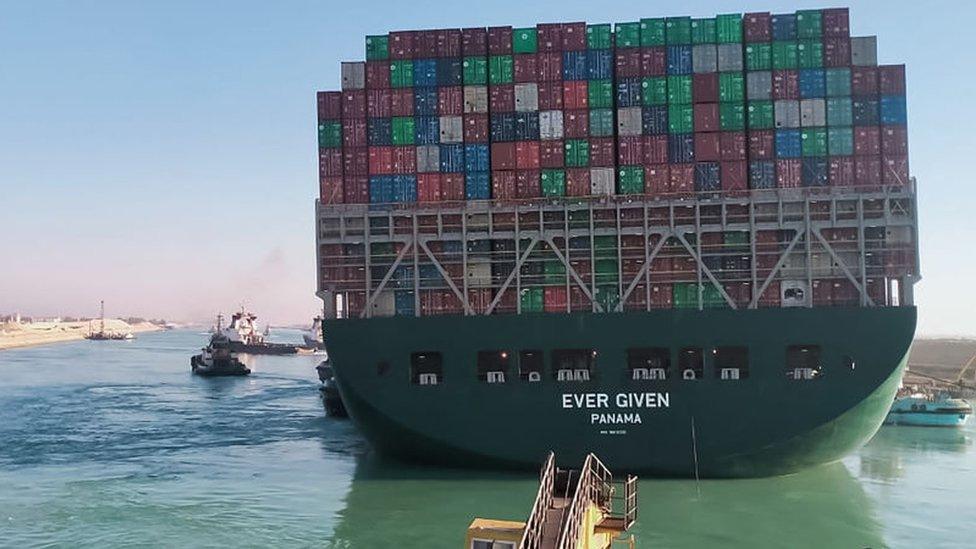Ever Given: Ship that blocked Suez Canal sets sail after deal signed
- Published
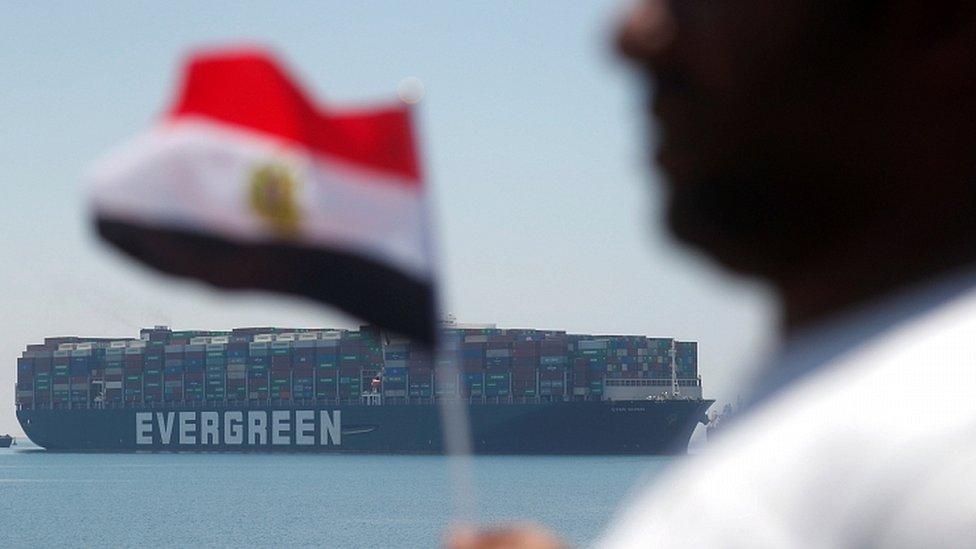
The Ever Given, part of the Evergreen fleet, has been held at the Great Bitter Lake near Ismailia for three months
A huge container ship that blocked the Suez Canal in March - disrupting global trade - is finally leaving the waterway after Egypt signed a compensation deal with its owners and insurers.
The Ever Given weighed anchor shortly after 11:30 local time (09:30 GMT) and headed north towards the Mediterranean escorted by tugs.
The ship has been impounded for three months near the canal city of Ismailia.
Terms of the deal were not disclosed but Egypt had demanded $550m (£397m).
As it got under way, Egyptian TV showed footage of the captain and a crew member being presented with flowers and a plaque on board the ship.
The 193km (120-mile) Suez Canal connects the Mediterranean Sea at the canal's northern end to the Red Sea in the south and provides the shortest sea link between Asia and Europe.
But the vital waterway was blocked when the 400m-long (1,312ft) Ever Given became wedged across it after running aground amid high winds. Global trade was disrupted as hundreds of ships were stuck in the traffic jam.
The container ship was refloated following a six-day salvage operation that involved a flotilla of tug boats and dredging vessels. One person was killed during the operation.
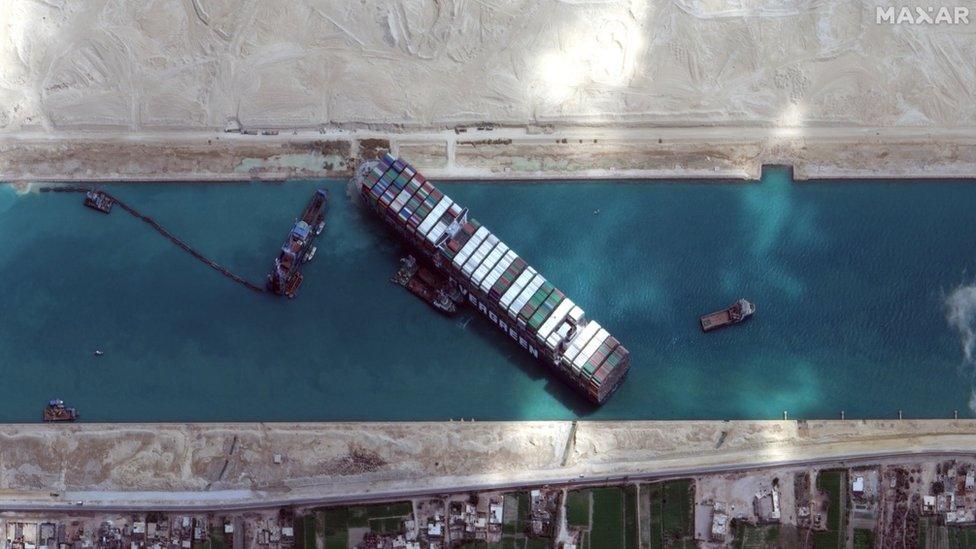
A satellite photograph reveals how the Ever Given was wedged across the canal
Since then, the Suez Canal Authority (SCA) has been seeking compensation from the Ever Given's Japanese owner Shoei Kisen for the cost of the salvage operation, damage to the canal's banks and other losses.
The SCA initially asked for $916m compensation, including $300m for a salvage bonus and $300m for loss of reputation. But UK Club - which insured Shoei Kisen for third-party liabilities - rejected the claim, describing it as "extraordinarily large" and "largely unsupported".
The SCA later lowered its demand to $550m. The final settlement, which has not been revealed, was agreed a few days ago and signed on Wednesday to coincide with the ship's release.

Relief as saga ends
By Sally Nabil, BBC News, Suez Canal
Journalists were taken on a tugboat to film the Ever Given finally resuming its voyage along the Suez Canal. As we watched the giant vessel sail past, everybody felt relieved. After more than three months, the story was coming to an end.
I remembered the scene back in March, when the ship was wedged across the waterway, bringing navigation to a stand-still for six days and disrupting global trade. Those days were quite tense and full of uncertainty. On Wednesday, the atmosphere was one of cheerfulness.
However, so far no-one knows what caused this whole saga. Investigations were carried out, but the findings have not been announced. At a news conference, Suez Canal Authority chairman Osama Rabie said the ship was the sole responsibility of its master.
The details of the financial settlement between the SCA and the ship's owners and insurers have also not been revealed. Mr Rabie refused to even give a rough estimate of how much of a compensation the SCA received.

SCA head Osama Rabie told a news conference that the authority would not change its rules about the passage of ships in bad weather. However, he said the grounding had accelerated plans for the canal's expansion.
The UK Club paid tribute to "the work and expertise of the SCA and others whose professionalism and dedication resulted in the ship being refloated".
"Over the last three months we, along with the ship's owners and other interests, have worked closely with the SCA's negotiations team to achieve today's results," a statement said.
(29 March 2021) The stranded container ship is seen finally on the move and no longer blocking the canal
Yukito Higaki of Imabari shipbuilding, of which Shoei Kisen is a subsidiary, said the company would continue to be "a regular and loyal customer" of the Suez Canal Authority.
The vessel, with an Indian crew, is still loaded with about 18,300 containers. It is due to undergo an inspection by divers at Port Said before sailing to Rotterdam in the Netherlands and then to the UK port of Felixstowe where it will offload its containers, the Wall Street Journal reported.
Related topics
- Published29 March 2021

- Published29 March 2021
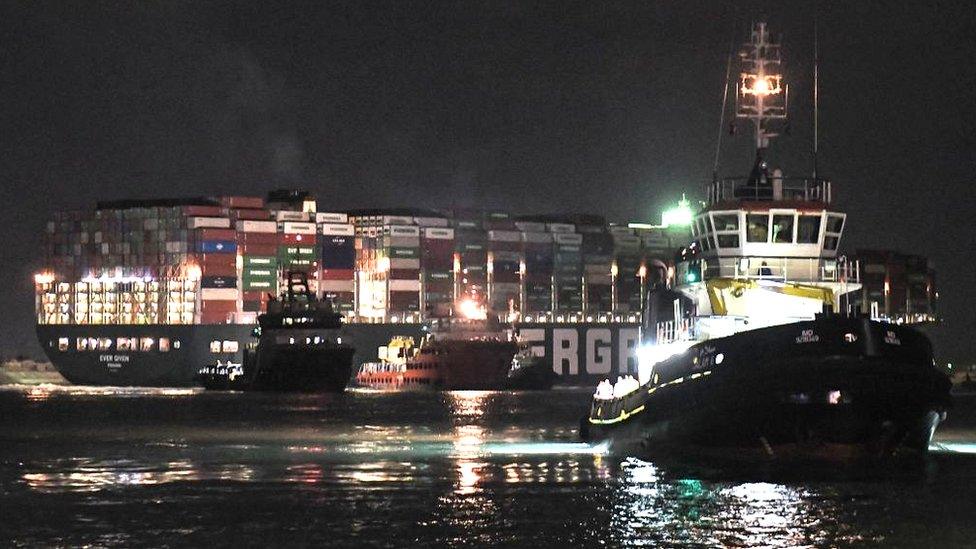
- Published29 March 2021
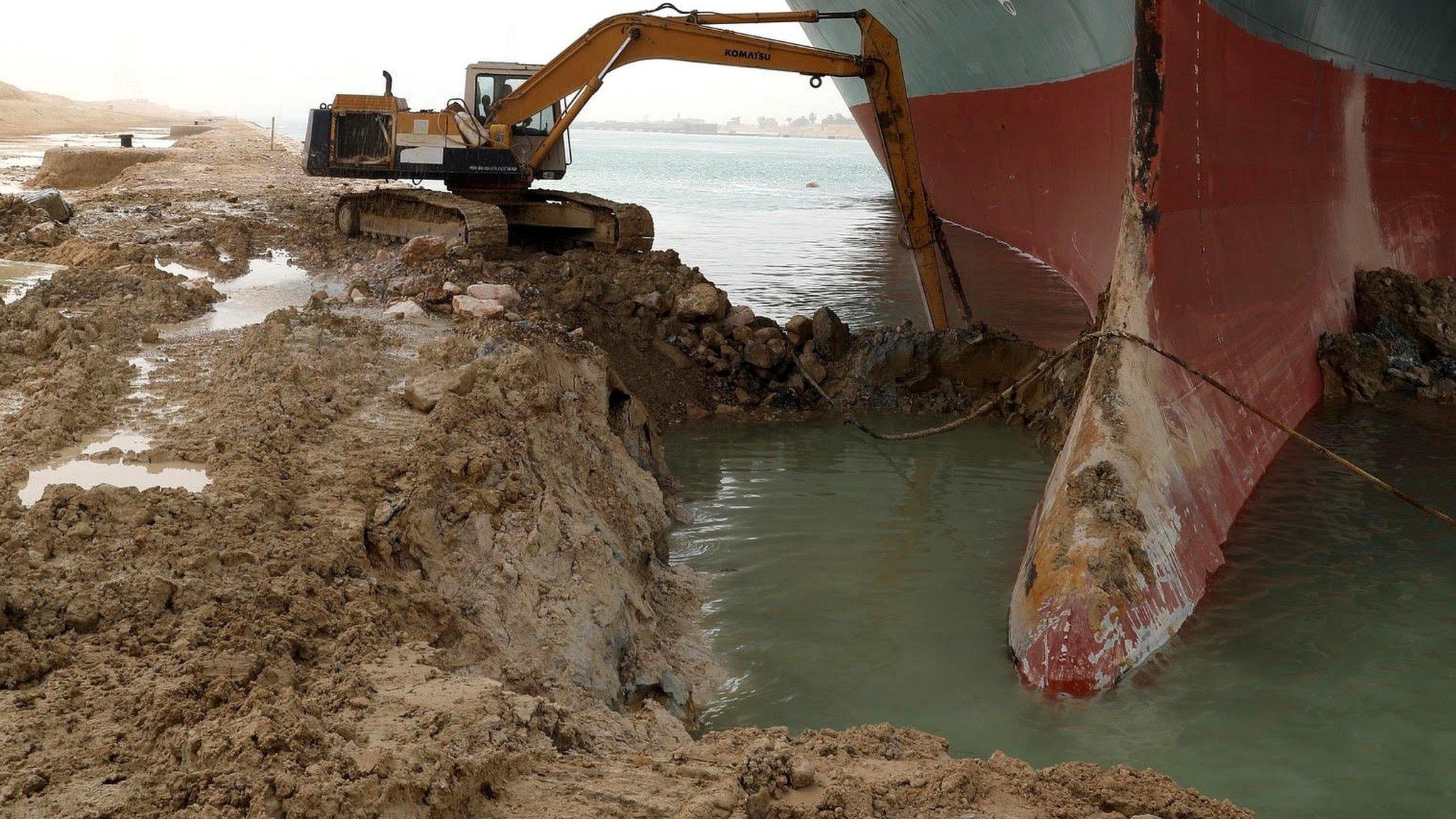
- Published29 March 2021
